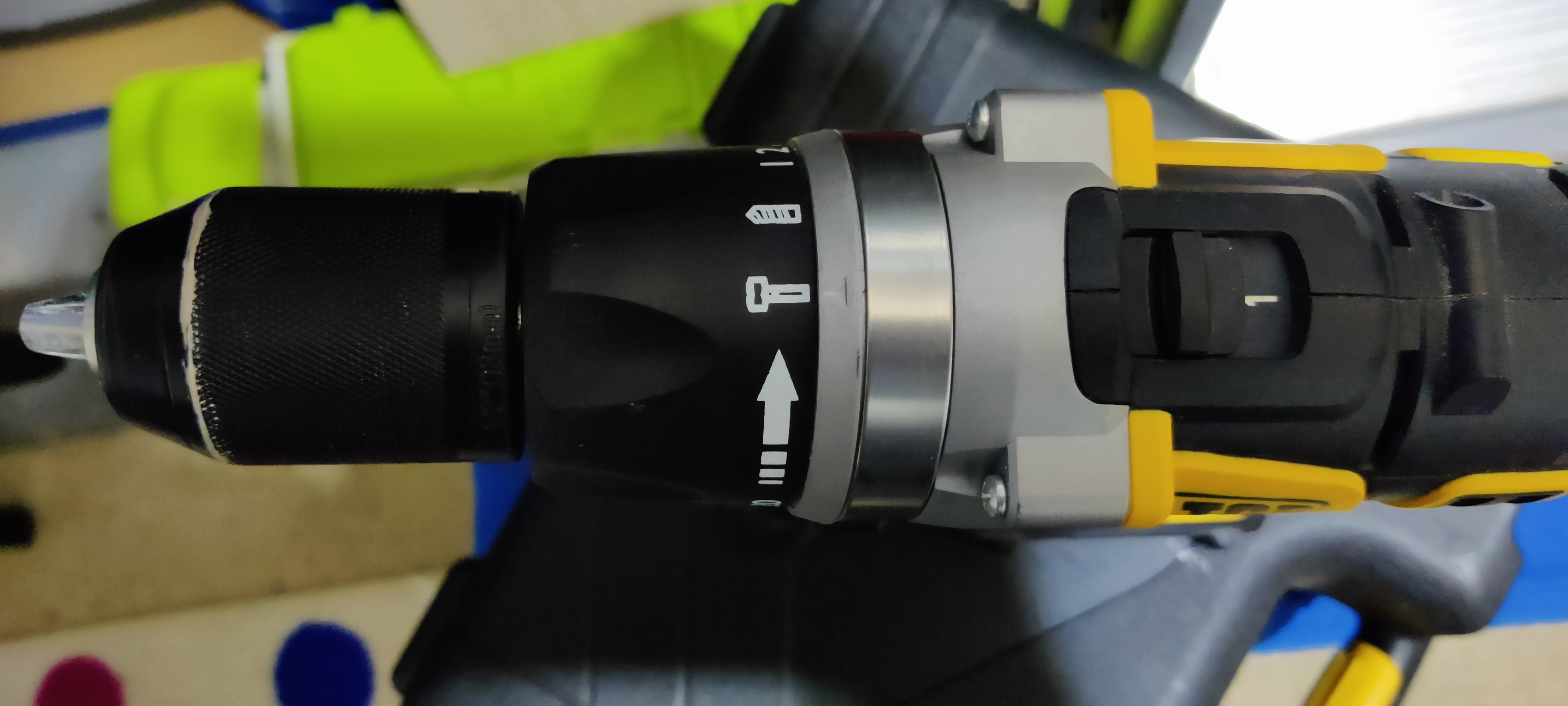this post was submitted on 23 Feb 2024
25 points (90.3% liked)
DIY
1428 readers
1 users here now
For DIY - this is also a placeholder.
founded 2 years ago
MODERATORS
you are viewing a single comment's thread
view the rest of the comments
view the rest of the comments

Yes that is the hammer setting on your drill. The next setting is for screwing things in with no clutch release (it will keep rotating while the button is depressed), and it appears you have a series of numbers next which are the clutch settings. These will apply different amounts of screwing pressure before the clutch disengages. Good for when you don't want to over tighten it strip screws.
For anyone new to drills:
Please do not use the drill setting for screws, you're gonna strip the head and regret it. Even with years of experience, being too lazy to turn the dial has burned me countless times
I only recently learned that the numbers are there for screwing not drilling! 🤪
You gotta start somewhere.
You're smarter than me for asking, though. I learned through trial and error and getting yelled at by my boss
Thanks for this add 100% correct, it's for drilling not screwing!
The hammering most of these 1/2 drill “hammer drills” perform isn’t the same percussive hammering as real sds hammer drills though.
Great for putting a hole in brick or mortar, but trying to go into actual concrete will be a lesson in futility.
I'll be putting a hole all the way through breeze block. Would it be ok?
Edit: km trying to avoid the expense of an SDS if I can as I only have 1 hole to do.
You'll be ok.
I'm assuming you're using a masonry bit so I'm gonna give you another tip:
LET THE BIT/DRILL COOL DOWN. You might burn the drill out and you WILL dull the bit. You don't need to drill through in one shot...drill for 20-30 seconds and wait a few minutes. It's slow but worth it.
Masonry bits are carbide tipped and don't dull, they just break. Heat is not an issue and the bit doesn't even function by cutting. It's a downward 45 angle in order to chip as it rotates. There's no cutting force from the rotation.
Good masonry bits are carbide-tipped but not all of them. I used those with our sls drill but I stuck to the cheaper ones for anything under 1/2"
Perhaps dull was the wrong word but the tips do wear out. You wind up with a useless flat stub at the end that won't push through anything
If you’ve got the stuff on hand it wouldn’t hurt to try, it could just take an ungodly long time.
You'll be fine. I've found applying pressure for about ten seconds, then clearing the hole, rinse and repeat, works well when using a "hammer drill" like this. Use speed 2.
Also, use a HEPA filter equipped vacuum to capture the dust as it's created, and wear an N95 dust mask while drilling. Silicosis is no joke
Yes it’s possible, it’s just why spend 30 minutes drilling one hole when you could have the proper tool and be done in seconds.
Homeowner doing it for themselves it makes sense, but if you’re paying someone or doing it to make money, get the right tools. You’ll make the money back in a dozen holes from the man hours you save.
Not everyone everywhere can afford a hammer drill for a single hole
Rent it, or buy it - use it and return it like everyone else.
Eh, drilling small holes in concrete is fine. If I need to throw a quick tapcon or something in a slab I'll just use my 1/2" chuck cordless hammer drill. You're absolutely right about larger holes though. What a pain. And don't talk to me about hitting rebar lol
Interesting. Do you know any for comparison, off the top of your head? I use a Milwaukee cordless myself. In the past I've use DeWalt, but that was in the 14.4V days. I didn't think there was any difference in 1/2" chuck hammer drills beyond battery size and motor., but I'd love to learn more
TBH I've always bought drills with a hammer function simply because they have metal casings, are made of sturdier construction, and are less likely to burn out when I'm drilling in 100yr old oak doors